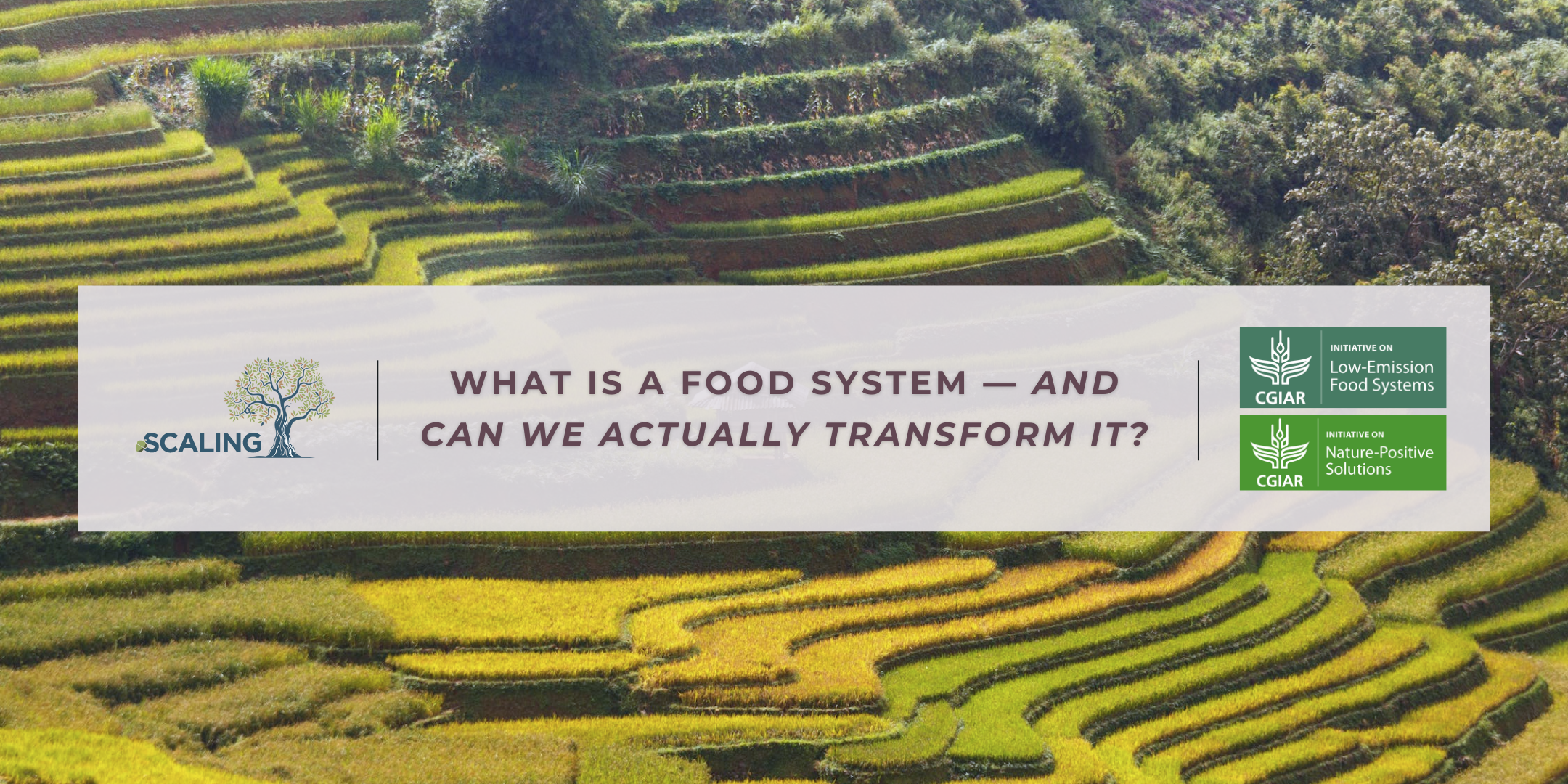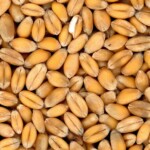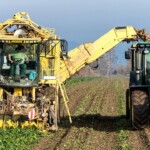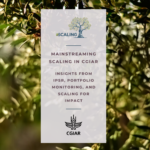
This webinar was originally posted by the CGIAR Initiative on Low-Emission Food Systems (CGIAR). The view the original post click here.
Everyone wants “food system transformation” and getting there in a sustainable and equitable way gets you the golden ticket – at least to donor support. The term “food system” has become a catchphrase in the development context, but do we truly understand what this and its “transformation” entail?
In a recent webinar co-organized by the CGIAR Initiatives on Low-Emission Food Systems (Mitigate+) and Nature Positive Solutions (Nature+), together with the Scaling Community of Practice, on January 16th, 2023, experts delved into the complexities of defining food systems, transforming them (or not), and of collaborative research. This is the first of a series of webinars on “Taking transformation seriously: Implications for CGIAR.”
Complexities within and competing views on food systems
Louis Verchot, research leader at the Alliance of Bioversity International and the International Center for Tropical Agriculture and lead of Mitigate+, started off the discussion with reflections on global development shaped by volatility and complexity. He also emphasized the need to address issues seriously and identify solutions through creative, interdisciplinary approaches.
The complexity of interactions in food systems was emphasized by Cees Leeuwis, professor at Wageningen University and Research, who also highlighted challenges in taking a systems approach. First, systems involve multiple actors, organizations, processes and environments. Second, system transformation faces challenges due to competing views, diverse goals and unequal power distribution. Existing systems are resilient and “sticky,” or resistant to change, and food systems are combined social and biomaterial systems that require nuanced approaches. A further problem with trying to change systems is each actor sees things differently — scientists and different stakeholders have different understandings of what constitutes a food system and what its boundaries are. Furthermore, there are informal and formal rules that govern these systems that first need to be understood in order to transform them through changed incentives.
|
|
|
|
|
|









